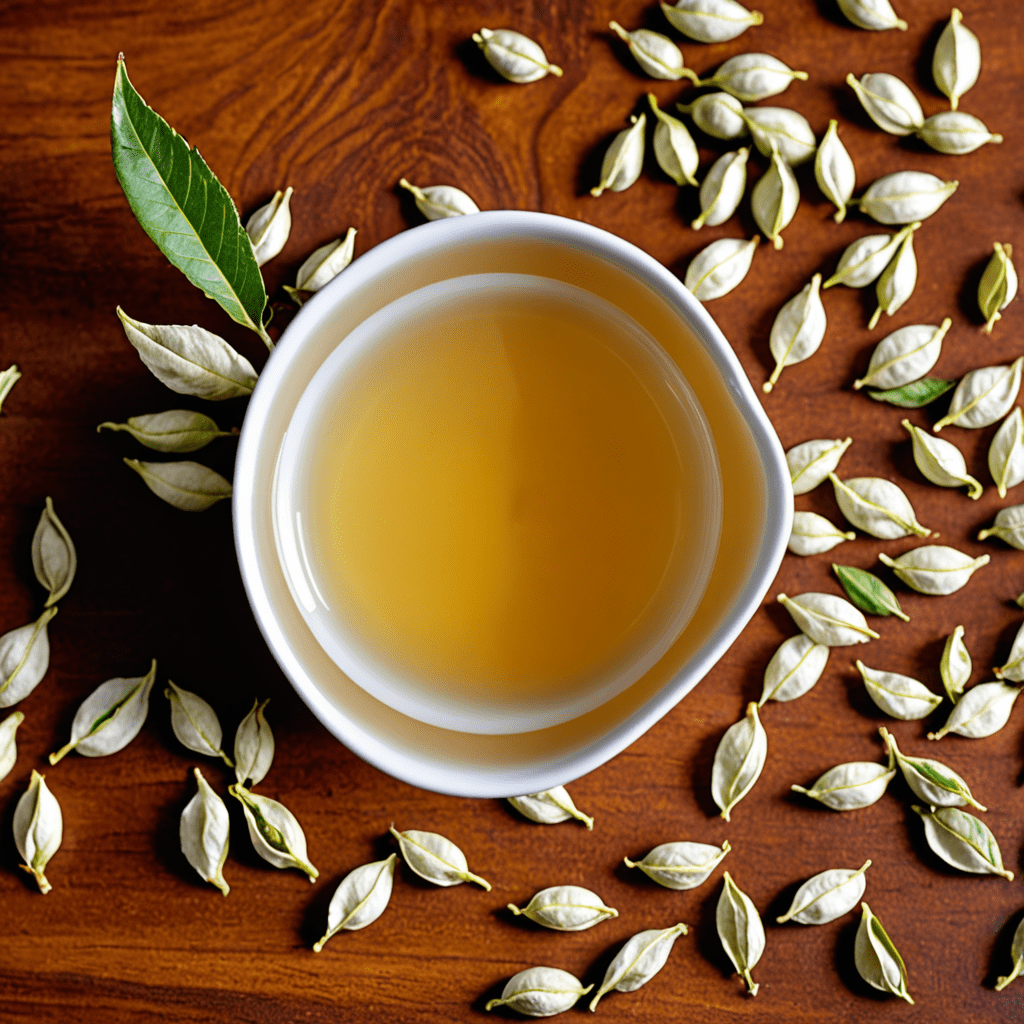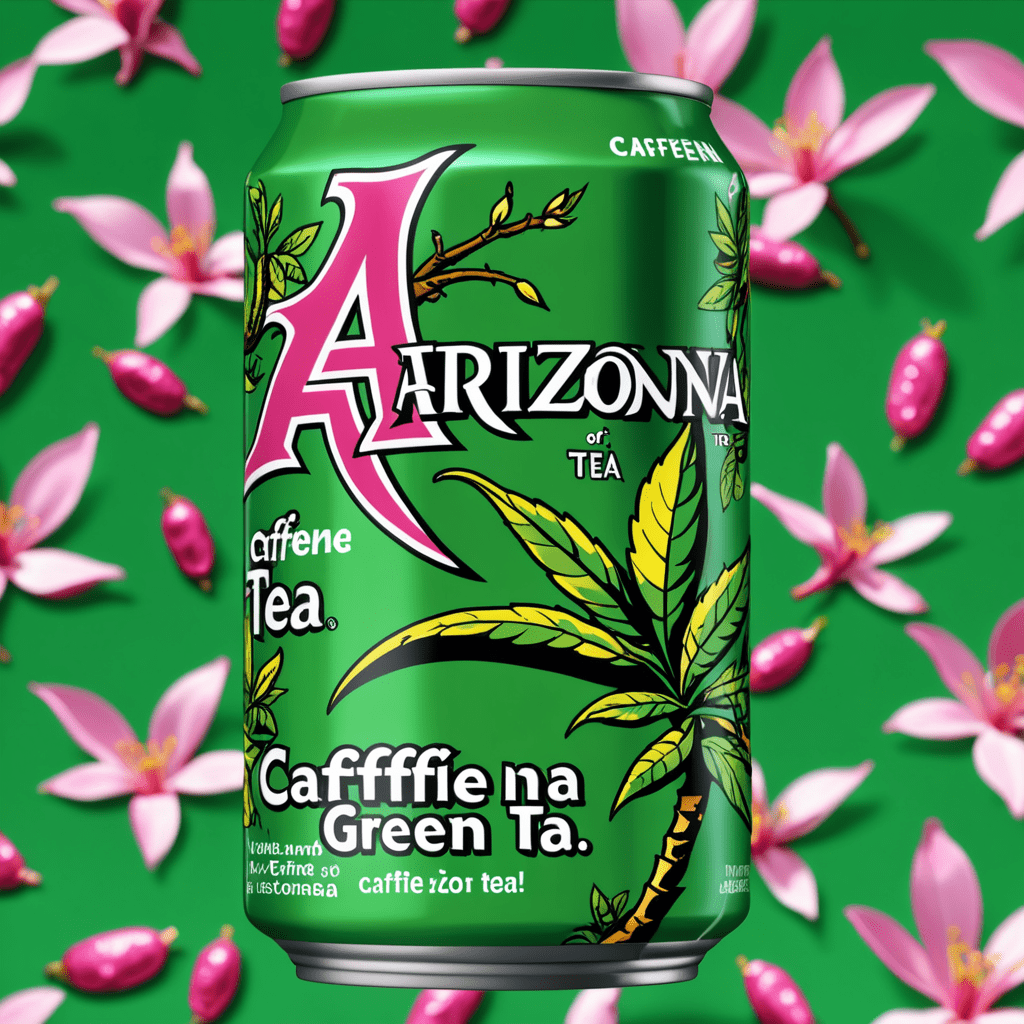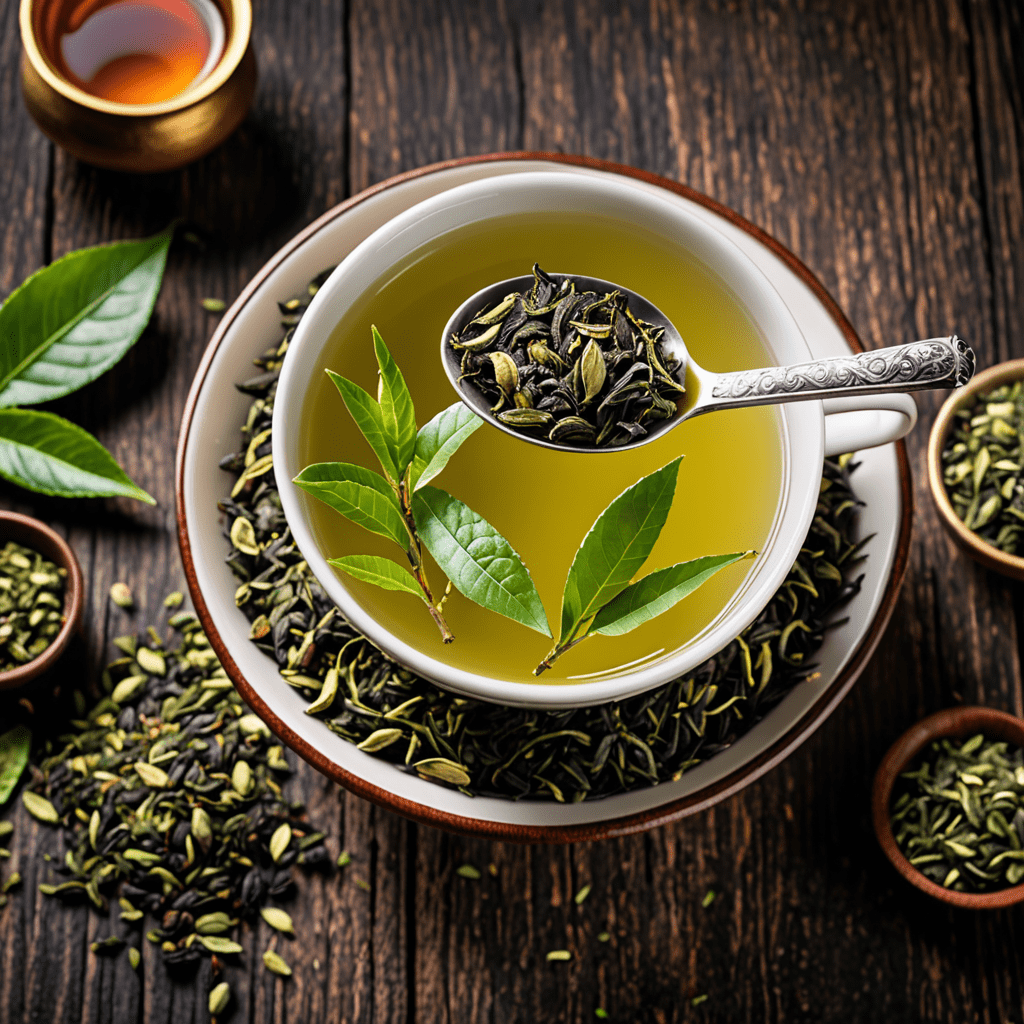White Tea: A Moment of Tea Harmony
White tea, known for its delicate flavor and numerous health benefits, offers a moment of tea harmony for those seeking a soothing and refreshing beverage. Originating from the Camellia sinensis plant, white tea is minimally processed, allowing its natural characteristics to shine through. Let’s explore the world of white tea and uncover the reasons why it is cherished by tea enthusiasts worldwide.
The Origins of White Tea
White tea traces its roots back to China, where it was historically reserved for emperors and nobility. Cultivated primarily in the Fujian province, white tea is harvested from young tea leaves and undergoes minimal processing, which helps retain its delicate flavors and beneficial compounds. The name “white tea” comes from the fine silvery-white hairs on the unopened buds of the tea plant.
The Unique Characteristics of White Tea
Compared to green or black tea, white tea undergoes the least amount of processing. The leaves are typically withered and dried, preserving their natural antioxidants and polyphenols. This gentle process gives white tea a subtle and slightly sweet flavor profile, often described as floral or honey-like, making it a favorite among tea connoisseurs looking for a light and refreshing brew.
The Health Benefits of White Tea
White tea is not only appreciated for its taste but also for its potential health benefits. Rich in antioxidants, white tea may help protect the body against oxidative stress and inflammation. Studies suggest that regular consumption of white tea could support heart health, improve skin condition, and boost the immune system. Additionally, the minimal processing of white tea ensures that it retains most of its beneficial properties.
How to Brew the Perfect Cup of White Tea
To fully enjoy the delicate flavors of white tea, proper brewing is essential. Start by using fresh, filtered water heated to around 170-185°F (77-85°C). Allow the tea leaves to steep for about 2-4 minutes to release their flavors gradually. Avoid using boiling water or steeping for too long, as this can result in a bitter taste. Experiment with different steeping times to find your perfect cup of white tea.
White Tea Varieties and Blends
While traditional white tea consists of young tea buds and leaves, modern tea producers have introduced various blends and flavored white teas to cater to different preferences. From jasmine-infused white tea to fruity blends, there is a wide range of options available for tea lovers to explore. Whether you prefer a classic white tea or a unique blend, there is something for everyone in the world of white tea.
The Ritual of Tea: Finding Harmony in Every Sip
Enjoying a cup of white tea is not just about the taste; it is also an opportunity to pause, relax, and appreciate the present moment. Whether you savor it in the morning to start your day on a calm note or in the evening to unwind, white tea offers a moment of tranquility and harmony amidst the hustle and bustle of daily life. Embrace the ritual of tea, and let each sip bring a sense of peace and balance to your day.
Embrace White Tea for its Simplicity and Serenity
White tea, with its gentle flavor and potential health benefits, provides a moment of tea harmony for those seeking a peaceful and rejuvenating drink. Whether you are a seasoned tea enthusiast or new to the world of specialty teas, white tea invites you to slow down, indulge in a moment of tranquility, and experience the subtle nuances of this exquisite beverage. Embrace the simplicity and serenity of white tea, and let it become a cherished part of your daily routine.
FAQs About White Tea
What is white tea?
White tea is a delicate tea made from the youngest and most tender tea leaves and buds. It undergoes minimal processing, allowing for a subtle flavor profile and high levels of antioxidants.
How is white tea different from other types of tea?
White tea is unique in that it is minimally processed and undergoes the least oxidation among all tea types. This results in a light color, subtle taste, and high levels of antioxidants compared to green, black, or oolong teas.
What are the health benefits of white tea?
White tea is known for its potential health benefits, including promoting skin health, aiding in weight loss, reducing the risk of heart disease, and improving oral health due to its high antioxidant content.
How should white tea be brewed?
To brew white tea, use water at around 175°F (80°C) and steep the tea leaves for 1-3 minutes. Avoid using boiling water as it can scorch the delicate tea leaves, resulting in a bitter taste. Enjoy the serene moment of tea harmony with a perfectly brewed cup of white tea.



